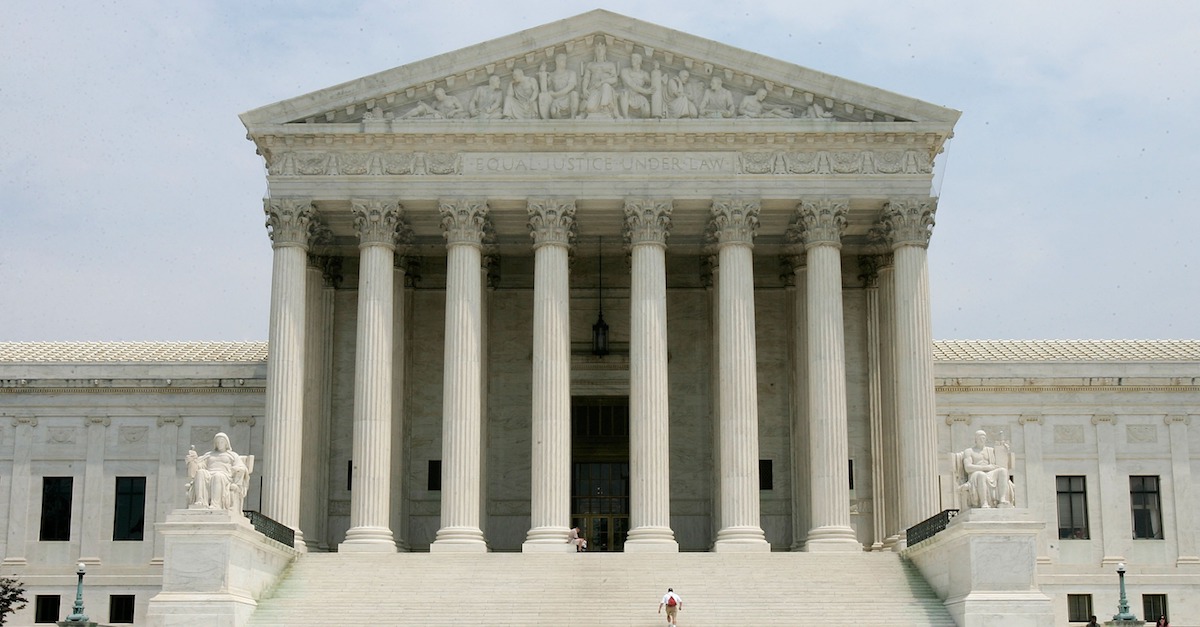
The nation’s highest court has ruled that states can force online retailers to collect sales taxes from their customers, even if those retailers lack a physical presence in the state imposing the tax.
Thursday’s decision overturns half a century of Supreme Court precedent on the issue.
Previously, out-of-state retailers were shielded from collecting sales taxes by the Supreme Court’s ruling in National Bellas Hess v. Department of Revenue of Illinois. This 1967 case concerned a mail order catalog company based in Missouri with no physical presence in Illinois. Some of the company’s customers lived in Illinois, however, and received the company’s products after ordering from the catalog.
Illinois attempted to have the company collect a use tax from its customers but the company declined. Legal action commenced and the Supreme Court agreed with the company, siding against the state. The six justice majority noted, “the Court has never held that a State may impose the duty of use tax collection and payment upon a seller whose only connection with customers in the State is by common carrier or the United States mail.”
The effective precedent established in National Bellas Hess was mostly left intact when the Supreme Court revisited the issue with their ruling in Quill Corp. v. North Dakota. This 1992 case added the wrinkle of e-commerce and online shopping to the discussion. Here, an office supply company based in Delaware sold its products to other companies located in North Dakota. Again, the company lacked any physical presence in the state.
North Dakota’s state tax authority attempted to require the company to collect and pay taxes based on their sales shipped into the state. The company disagreed, of course, and legal action followed. Ultimately, a unanimous court ruled the lack of a physical presence or nexus in any given state can serve as the legal basis for exempting companies from have to collect or pay sales or use taxes to the state in question. This came to be known as the physical presence rule.
Those two previous cases were explicitly overturned by Thursday’s holding in South Dakota v. Wayfair. In a 5-4 decision authored by Justice Anthony Kennedy, the Supreme Court called the physical presence rule “unsound and incorrect.”
“Each year, the physical presence rule becomes further removed from economic reality and results in significant revenue losses to the States,” Justice Kennedy argued.
Ideologically, the court’s movement conservatives sided with swing-voter Kennedy. Chief Justice John Roberts sided with the court’s more liberal wing.
Here’s how we got there: In response to a real-or-perceived crisis with the state tax base and subsequent revenue generation, South Dakota’s legislature passed a law which requires out-of-state retailers to collect and remit sales tax “as if the seller had a physical presence in the state.” Wayfair, a company which sells furniture and homewares, contested the law because they have no physical presence in South Dakota and won a series of court battles prior to today’s decision.
As far as the facts are concerned, Kennedy’s decision relies quite heavily on the shifting e-commerce landscape and advances in technology viz. the Internet. The consummate swing justice notes, “[T]he administrative costs of [tax] compliance, especially in the modern economy with its Internet technology, are largely unrelated to whether a company happens to have a physical presence in a State.” The decision continues:
In other words, under Quill, a small company with diverse physical presence might be equally or more burdened by compliance costs than a large remote seller. The physical presence rule is a poor proxy for the compliance costs faced by companies that do business in multiple States.
As far as the law is concerned, the ruling aims to comport with what Kennedy refers to as “the Court’s modern Commerce Clause precedents.” Commerce Clause jurisprudence is considered a fairly complicated area of Constitutional law. Suffice to say, the Commerce Clause essentially holds that the power to regulate interstate commerce is the province of the federal government and generally prohibits states from interfering with trade between the states.
There are numerous caveats and qualifications to Commerce Clause jurisprudence, but the general idea is one of balance between state and federal action–with the Supreme Court typically acting as referee in order to maintain “the free flow of interstate commerce.” Over time, this doctrine–and its application by the courts–has shifted substantially. Here, Kennedy’s majority opinion is essentially arguing for, and achieving, more evolution.
The ruling determines that modern Commerce Clause jurisprudence is simply not applicable to the situation at hand. That is, the ruling flatly declares that the physical presence rule is unnecessary to prevent undue burdens on interstate commerce. The decision tidily sums up the major legal issue at the heart of the case:
[T]he real world implementation of Commerce Clause doctrines now makes it manifest that the physical presence rule as defined by Quill must give way to the “far-reaching systemic and structural changes in the economy” and “many other societal dimensions” caused by the Cyber Age.
So, what does it all mean? If you buy anything online, your taxes are going up soon.
[image via Alex Wong/Getty Images]